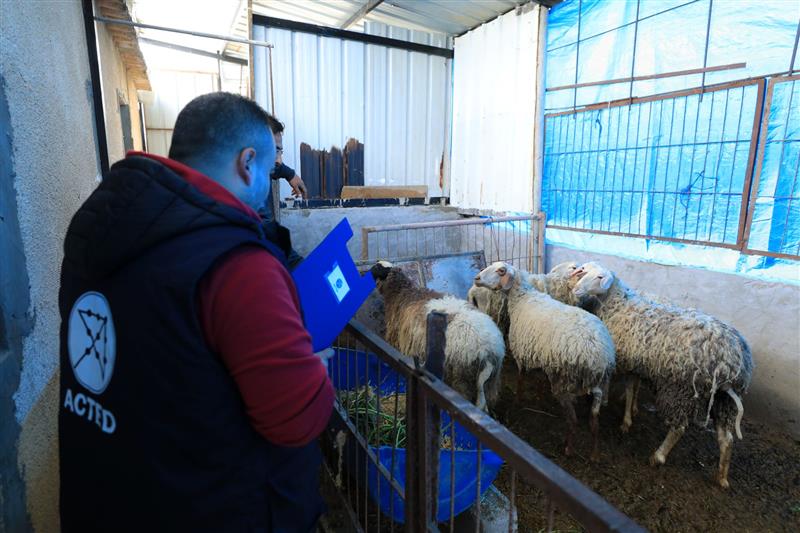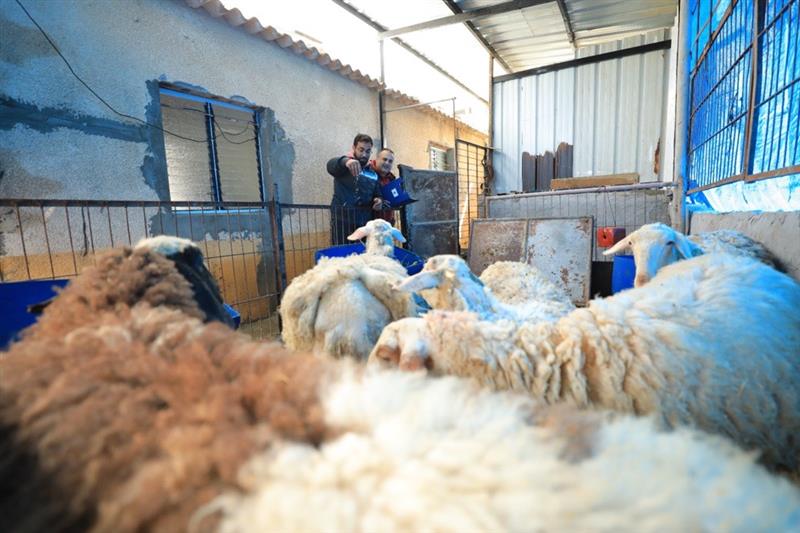Gaza: Shelter rehabilitation to vulnerable households affected by the conflict escalation of May 2021
Responding to the last hostilities in May 2021 in Gaza, Acted supported vulnerable families through shelter rehabilitation and income generation. The project started in July 2022 and was carried out over one year, in partnership with Unlimited Friends Association for Social Development (UFA).

About the project
The living conditions in the Gaza Strip have been deteriorating due to reoccurring violence and conflict escalations as of May 2021 which resulted in the partial or complete destruction of around 58,000 houses, according to a Ministry of Public Works and Housing’s assessment. One year later, 7,250 individuals were still not able to construct or repair their houses due to the lack of funding and technical constraints.
The proposed intervention aims to support the most vulnerable households (HH) in the Middle Area, Khan Younis and Rafah governorates, which were heavily affected by the last hostilities in May 2021. The proposed project is an intervention aiming to address life-saving shelter rehabilitation needs of the most vulnerable households to support them in generating income through the provision of cash for shelter repair for partially or severely damaged homes, coupled with the provision of cash for income-generation to the most acutely vulnerable households.
Acted will rely on the support of Community-Based Protection Committees to best implement this project.
The project design endorses all Shelter Cluster recommendations, notably through the implementation of a tailored assistance that includes the provision to 120 HHs of cash-based self-help approach for urgent shelter rehabilitation based on their needs and 10 HHs to restore their livelihoods to generate income.
Moreover, Gaza’s poor socio-economic state further hinders the population’s ability to cope with the impact of the recurring hostilities. This means households cannot sustain their livelihoods, leading to an increasing number of food-insecure families.
In response, through its project, Acted supported the urgent shelter needs of 121 vulnerable households living in the Gaza Strip (Middle Area, Khan Younis, and Rafah governorates) through conditional cash transfers, assistance to repair and upgrade their shelters, purchase Non-Food items (NFIs) when assessed as necessary, and to restore their income-generation opportunities.
House rehabilitation
Acted distributed cash for repair and upgrade of shelters to 111 partially and 10 severely damaged households. This enabled the improvement of living conditions of households in ensuring the shelter minimum standards are met and privacy, dignity, and other protection concerns are addressed.
During the May 2021 conflict escalations, Sameh’s house and small farm were affected, sustaining damage. Sameh lives with his wife, daughter, aunt, and is the one providing income for the family. Having to take care of his family and doing the necessary works for this house put him in a desperate situation, as he couldn’t afford securing family’s income and the house rehabilitation.
The cash assistance provided by Acted allowed him to buy materials to rehabilitate his house. The grant allowed him to renovate the walls, kitchen, bathroom, and to add an extra window.

"The situation before was disastrous, extremely difficult."
Livelihood support
Throughout this project, 13 vulnerable households were supported with cash to restore their livelihoods and generate income. The income allowed households to address their basic life-saving needs and therefore break the cycle of poverty.
The livelihood grant allowed him to get back into farming practices. It allowed him to build an appropriate shelter for sheep and invest in animal feed for two months by acquiring cleaning tools, food delivery tools, a water tank, and medications. In the following months, he hopes to increase his sheep herd from 5 to 10 thanks to the income generated.
The reoccurring conflict escalation in the Gaza Strip leading to damaged and destroyed housing puts its population at risk of losing their homes and struggling to fulfil basic needs. Therefore, Acted’s support in addressing vulnerable families’ shelter needs and restoring income-generating activities is crucial to help them building resilience for future shocks.
Exactly one year after May 2021 conflict escalation, according to a shelter cluster assessment , 7,250 individuals remained internally displaced due to the lack of funding and technical constraints for reconstruction of their houses – which represents approximately 10% of the total number of people who were displaced due to the escalation.
Following the airstrikes in August 2022, eighteen housing units were destroyed and 68 severely damaged, leaving 84 families (450 individuals) internally displaced to the host community. In addition, an estimated 1,675 housing units sustained moderate to minor damage, affecting 8,500 individuals.
According to UN OCHA, following more hostilities that began on May 9, 2023, the Ministry of Public Works and Housing in Gaza reported that a total of 2,943 housing units sustained damage, including 103 destroyed, 140 severely damaged and 2,700 that were otherwise damaged. During the escalation, 1,244 Palestinians were internally displaced, either because they lived in one of the 2,943 housing units that were damaged, or because they identified safer areas to stay in.